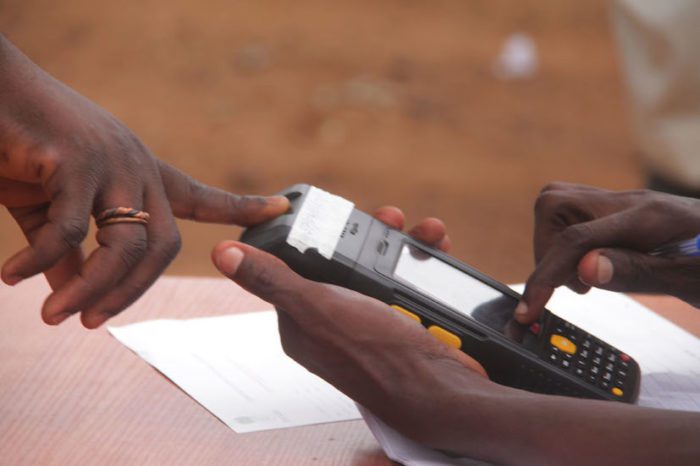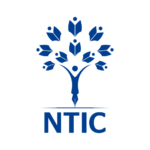In five days, it will be presidential election. As we all pray that the most AUTHENTIC candidate wins the race, I would like to emphasize my suggestion on how you should choose your candidate. That is, if I were to give you a single metric to judge whom you should vote for, it would have to be your honest perception of the selflessness of a candidate. That is, ask yourself, “Is this candidate running for an office because he or she TRULY cares for the welfare of the people?” If the answer is NO, do not vote for the person.
Of course, the hope is that you will vote your true mind, and that you wouldn’t be swayed by fake news, misinformation, deceit; or false and mesmerizing advertisement. You should also not be influenced by outlandish individual political figures; you need to see through all these. In Nigeria, despite the promise and the blessings bestowed by God on the country in terms of people’s superior intellect and the abundance of natural resources, there is already at least a generation of youth that know nothing but corruption. You should contribute to putting an end to this disease via your vote.
Once you’ve taken care of your end – by voting right – you’ll certainly hope that your vote will be counted. This is where the Independent National Electoral Commission (INEC) comes in. In my humble opinion, INEC is a model agency that deserves some praise for a job superbly well done since 1999. The agency’s ability to curb excessive electoral fraud to the barest minimum, foster credible elections, and make its operation very transparent, should be espoused. These accomplishments have been possible because of the infusion of Information and Communication Technology (ICT) into the electoral process.
Ballot box stuffing, mutilation of result sheets, “over-voting,” alteration of result sheets, multiple registrations, and the hijacking of ballot boxes are some of the electoral malpractices that INEC has been able to drastically mitigate by using a suite of technology-driven approaches. This is not an easy feat by any measure, but somehow the agency has been able to “pull it off”. The chronology of INEC’s successive infusion of technology into the electoral process in Nigeria has been thoroughly investigated in a fine paper entitled “The Impact of ICT in the Conduct of Elections in Nigeria,” by Toba Paul Ayeni and Adebimpe Omolayo Esan, in the February 2018 issue of the American Journal of Computer Science and Information Technology.
The studies by Ayeni and Esan cover the voting process from 1999 through 2017. Take voter registration as an example. In 1999, it was done manually by pen, paper, and the typewriter. Back then, it took 14 days to register, and only basic details were captured, with no pictures, fingerprints, or other biometric data. Also, no digital databases were maintained and votes were not accredited, nor were results electronically collated. Fast forward to 2016, voter registration was done digitally – no more typewriters – via the Direct Data Capture Machine (DDCM), an improved version of the Automatic Fingerprints Identification System (AFIS), coupled with the use of a “business rule,” which requires that at least two fingers must be captured for a voter to be included in the register.” Instead of allocating a block of time for registering voters, registration is now done on a continuous basis using the Continuous Voters Registration (CVR) technology. The Electronic Voters Register (EVR) technology is coupled with INEC’s adopted technology for the accreditation of voters, using the INEC Voters Identification System (IVAS) – popularly called the Smart Card Reader (SCR). Moreover, the result sheets from all the polling units are now scanned and uploaded on the Election Transparency Administration and Collation (e-TRAC) platform, combined with any required Electronic Collation Support (E-Collation) tools. Of course, in addition to basic personal details, photographs and fingerprints of voters are now collected and archived in a database. Finally, the updating of register and revalidation of voters are now done before any general election. Among other applications, this enables INEC to detect and remove deceased voters from the register.
The net results of the digitization of the electoral process by INEC have been summarized by Ayeni and Esan. “It can be deduced from the chart that INEC through the regular use of its technologies by its staff is now more technologically efficient. This is evident in the number of days voters registration was conducted in 2006 compared to 2011. It took INEC 4 months to register 61,567,036 voters in 2006 while it registered 73,528,040 within 21 days in 2011.
The number of voters registered in 2011 differs with that of 2007 by 19.42% which represents over 12 million voters. This is due to INEC’s improvement on the quality of machines and personnel used for the 2011 voters’ registration.” (Note that technology was already in place in 2011.)
The INEC story is a testament to the fact that a lot can get done with the right manager which, in the case of INEC, is Professor Attahiru Jega. This fact should also weigh with you as you decide whom you are going to vote for as president.




